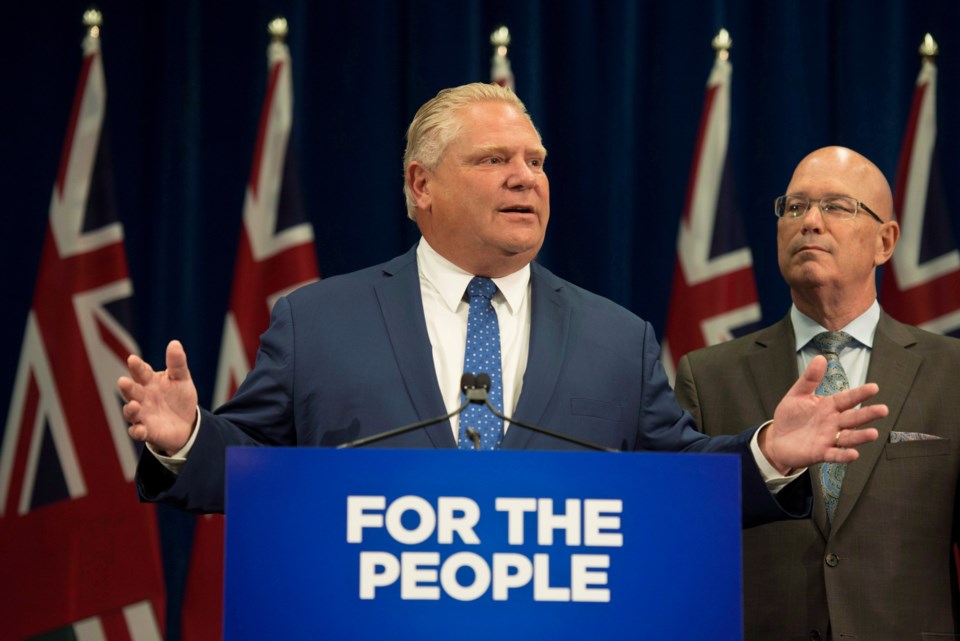Editor's note: This article originally appeared on The Trillium, a new Village Media website devoted exclusively to covering provincial politics at Queen’s Park.
The Ford government will release its next set of housing policy moves on Thursday.
It will be the next iteration of the government’s plans to see 1.5 million homes built in Ontario by 2031. The moves build on Bill 23 from last fall, the Progressive Conservatives' strong mayors law, the pre-election Bill 109, the Greenbelt changes, and more.
On Wednesday afternoon, shortly after The Trillium reported a new housing bill would be introduced on Thursday, the Ministry of Municipal Affairs and Housing published a press release announcing it.
Various stakeholders will be given a policy briefing on Thursday morning, followed by journalists around midday.
Steve Clark, the municipal affairs and housing minister, has already made a few housing-related announcements this week.
On Wednesday, he and Attorney General Doug Downey were in London to announce new funding for the Landlord and Tenant Board (LTB) to help clear the massive backlog. The government said the $6.5 million spend will go toward 40 new adjudicators and five administrative staff.
As of mid-November last year, the LTB had 82 adjudicators, down from 94 at the end of 2021, according to data Downey’s ministry tabled in the legislature this week.
The pair also announced proposals that will ensure tenants can install air conditioners and will strengthen protections against renovictions.
On Tuesday, Clark was in Mississauga to promote a $202-million commitment by the government to homelessness prevention programs that was included in the March 23 budget. Over $190 million of the total will go to the Homelessness Prevention Program run by provincial facilitators, while nearly $12 million will go to the Indigenous Supportive Housing Program.
A handful of sources also told The Trillium they expected the provincial government would soon approve several municipalities' official plans.
Last year, after it introduced Bill 23, the Ford government approved the urban boundaries of Hamilton and Halton, while also expanding their urban boundaries over the city councils’ objections.
Many municipal officials were surprised by, and opposed, previous boundary expansions made by Clark, since official plans can take years to draft and pass.
Three sources said they expected the provincial government to soon push ahead the official plans of Waterloo, Guelph and Wellington — although others could soon be approved, too.
Consultations on these municipalities' plans, led by the provincial government, finished in early January.



